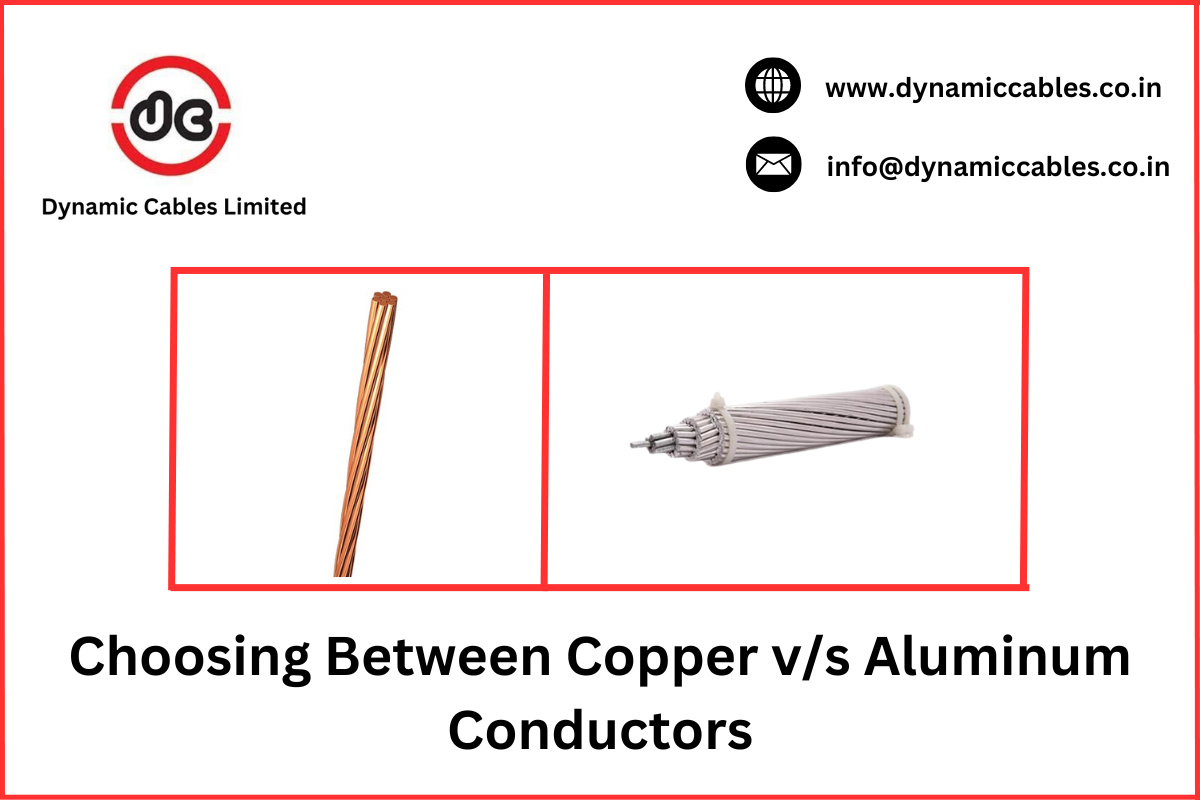- An ISO 9001:2015, 14001:2015 & 45001:2018 Company

What are the Benefits of Using Copper vs. Aluminium Conductors?
Copper and Aluminium are preferred for their high conductivity and low resistance, as are the most popular materials to use as electrical conductors in cables. While these metals have certain qualities in common, such as resistance to corrosion and flexibility, they also have unique characteristics that make them useful for a variety of purposes. When it comes to electrical wiring, choosing the right type of conductor requires careful consideration of a number of aspects. In this article, we will read about the benefits of using Copper Conductors and Aluminium Conductors.
Benefits of Using Aluminium Conductors
- Lightweight and easy to install.
- Good electrical and thermal conductivity.
- 100% recyclable, retaining all original properties during recycling.
- Lower cost compared to copper.
- It can be used in high-temperature environments without melting or burning.
- Lightweight, making it suitable for applications where weight is a concern.
- Corrosion resistance, although not as high as copper.
Benefits of Using Copper Conductors
- Copper has the superior conductivity, second only to silver.
- High heat resistance and corrosion resistance.
- Copper's high melting point and heat resistance make it ideal for electrical and heat-related components.
- Copper's superior heat resistance reduces the risk of overloading issues.
- Copper wiring is popular for its compatibility with other metals. Various types, including bare copper wire and stranded wire offer versatility for different applications.
- High thermal and electrical conductivity.
Comparison between Copper and Aluminum Conductors
- Energy Efficiency: Copper conductors are more energy-efficient than aluminium conductors, as they can carry more current with less energy loss.
- Cost: Aluminum conductors are generally less expensive than copper conductors, making them a more cost-effective choice for applications where cost is a major concern.
- Durability: Copper conductors are more durable than aluminium conductors, as they are less susceptible to corrosion and damage.
- Safety: Copper conductors are generally considered safer than aluminium conductors, as they are less likely to cause electrical fires due to their lower resistance to current flow.
- Environmental Impact: Both copper and aluminium conductors have a low environmental impact, as they are both recyclable materials. However, copper is more environmentally friendly due to its higher recycling rate.
Copper Conductor or Aluminum Conductor, Which one is better?
Copper has been used in electrical applications for a long time because it conducts electricity well and has relatively low resistance. But it's expensive. That's why aluminium has become more popular lately. It's cheaper and still conducts electricity decently. However, aluminium isn't as strong as copper, so you need more of it to carry the same electricity load. This can make it trickier to handle. Also, aluminium gets a layer of oxide when it's exposed to air, which can mess up connections over time. That's why lots of folks stick with copper. But if you're on a tight budget, aluminium could work for you.
ConclusionCopper is the best for electricity because it conducts better and doesn't resist it much. It can handle more power than aluminium, making it great for electrical stuff. Plus, copper lasts longer because it doesn't rust as easily. Even though aluminium is cheaper and lighter, it's not as good at carrying electricity and rusts more. That's why most people prefer copper for electrical jobs.
Whether you opt for the high efficiency of copper or the economical option of aluminium, it's very important to source your conductors from top copper and aluminium conductor manufacturers to ensure quality and reliability.
 English
English


 C701, Tower-C, Noida One
C701, Tower-C, Noida One
